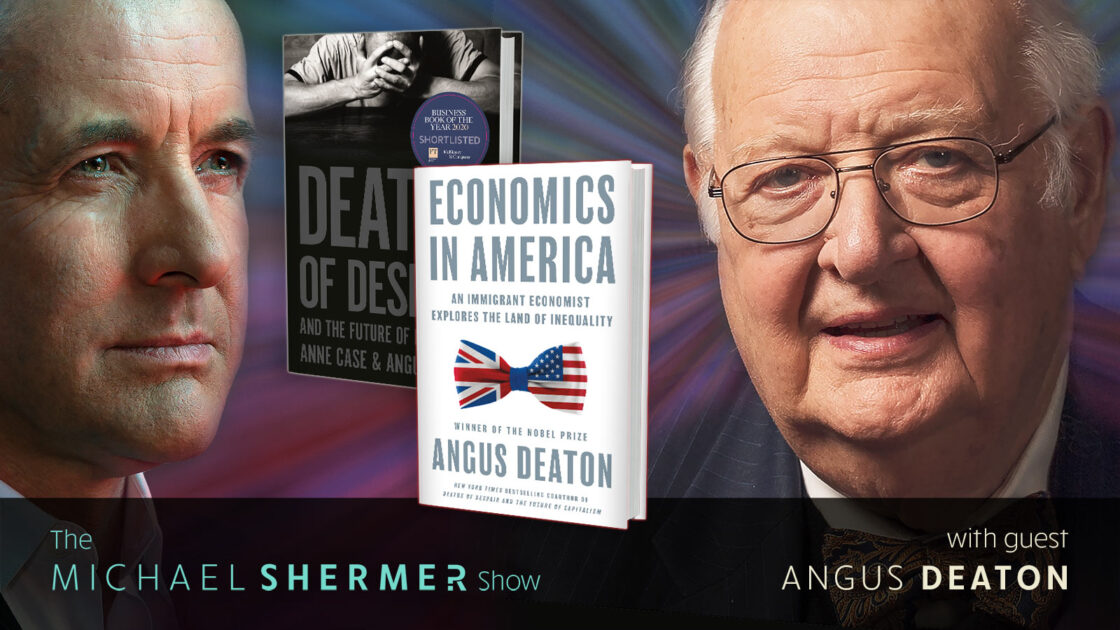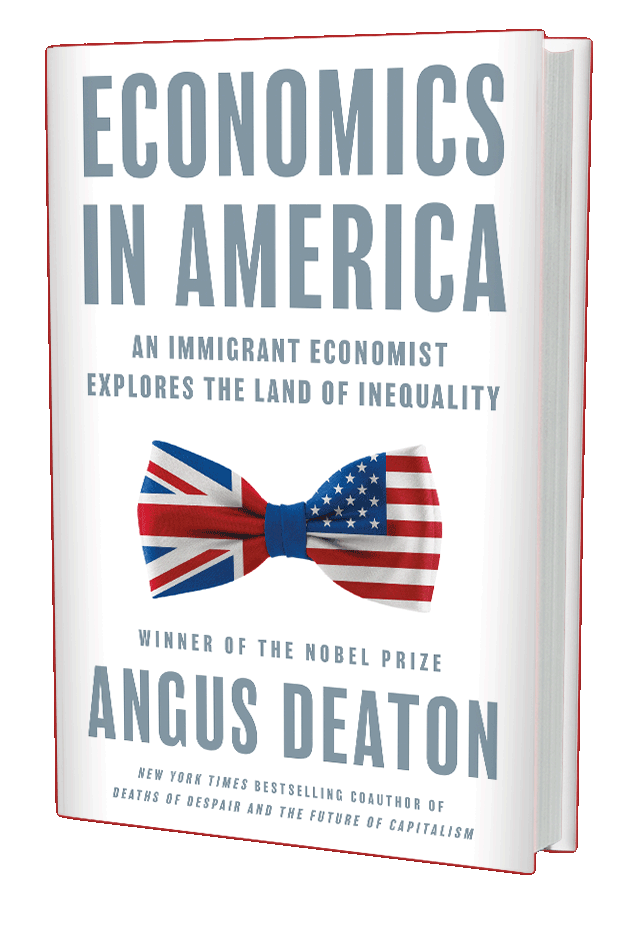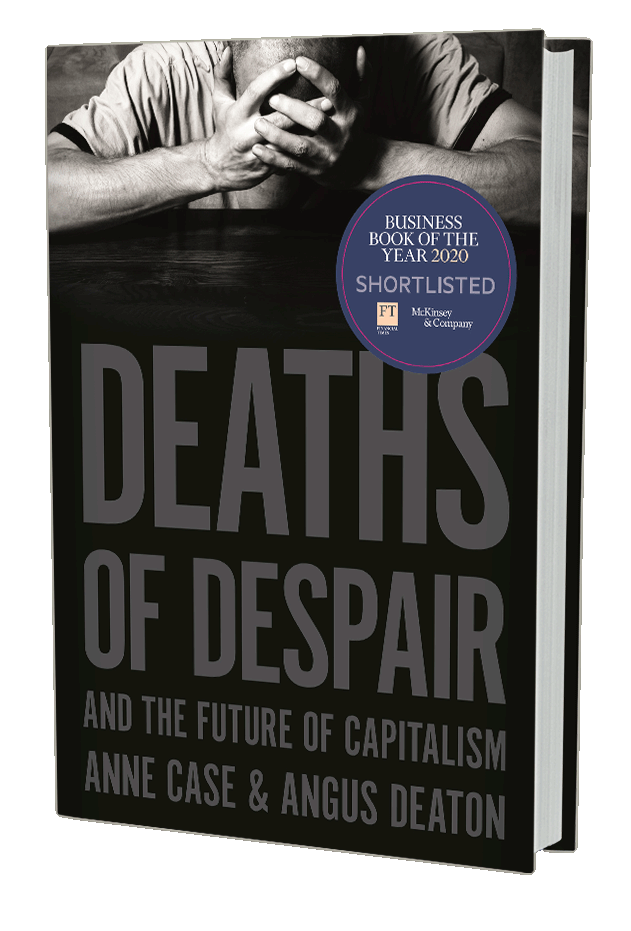When economist Angus Deaton immigrated to the United States from Britain in the early 1980s, he was awed by America’s strengths and shocked by the extraordinary gaps he witnessed between people. In this conversation based on his new book, Economics in America, the Nobel Prize-winning economist explains in clear terms how the field of economics addresses the most pressing issues of our time—from poverty, retirement, and the minimum wage to the ravages of the nation’s uniquely disastrous health care system—and narrates Deaton’s account of his experiences as a naturalized U.S. citizen and academic economist.
Deaton is witty and pulls no punches. In his incisive, candid, and funny book, he describes the everyday lives of working economists, recounting the triumphs as well as the disasters, and tells the inside story of the Nobel Prize in economics and the journey that led him to Stockholm to receive one. He discusses the ongoing tensions between economics and politics―and the extent to which economics has any content beyond the political prejudices of economists―and reflects on whether economists bear at least some responsibility for the growing despair and rising populism in America.
Blending rare personal insights with illuminating perspectives on the social challenges that confront us today, Deaton offers a disarmingly frank critique of his own profession while shining a light on his adopted country’s policy accomplishments and failures.
Angus Deaton, winner of the 2015 Nobel Prize in economics, is the Dwight D. Eisenhower Professor of Economics and International Affairs Emeritus and Senior Scholar at Princeton University. He is the author (with Anne Case) of the New York Times bestselling book Deaths of Despair and the Future of Capitalism, The Great Escape: Health, Wealth and the Origins of Inequality, and his new book Economics in America: An Immigrant Economist Explores the Land of Inequality, all from Princeton University Press.
“Practical men who believe themselves to be quite exempt from any intellectual influence, are usually the slaves of some defunct economist. Madmen in authority, who hear voices in the air, are distilling their frenzy from some academic scribbler of a few years back.”
Shermer and Deaton discuss:
- What’s it like to win the Nobel Prize?
- What do economists do?
- What kind of science is economics?
- Ludwig von Mises, Friedrich Hayek, Milton Friedman, Ayn Rand
- How economists determine causality of problems, e.g., deaths of despair?
- Why a college education matters
- Meritocracy and the “Just World” theory of how lives turn out
- Minimum wage
- Healthcare
- Poverty
- Inequality
- Deaths of despair: causes and consequences
- Opioid crisis, alcoholism, suicide
- Why people die by suicide
- Inflation: what causes it and what lowers it?
- Interest rates and the Federal Reserve
- What makes money valuable without the gold standard?
- Modern Monetary Theory
-
Adam Smith and what he really said (text from The Mind of the Market):
It should be clear by now that Adam Smith was anything but blindly pro-business, as the myth shrouding his legacy would have us believe. Adam Smith was, in fact, quite skeptical of the base motives of producers. Throughout The Wealth of Nations, Smith criticized “factions”—groups of politically connected businessmen, bankers, tradesmen, and industrialists who turned to the government to do their bidding—because their formation constituted a power bloc that would serve the special interests of producers rather than the general interests of consumers:
“People of the same trade seldom meet together, even for merriment and diversion, but the conversation ends in a conspiracy against the public, or in some contrivance to raise prices.”
- What poorer countries need to do to become richer countries
- Obama’s “you didn’t build that” speech (should have added “by yourself”)
- Electricity markets
- Religion and capitalism: Billy Graham, Normal Vincent Peale
- Conservative Think Tanks, Libertarian Think Tanks.
Twitter Questions
Matt Johnson
Does he think globalization is to blame for Trumpism? Has he read Michael Sandel’s book The Tyranny of Merit? If so, what does he think about it?
Stan C. Cox
Maybe the trade-offs between maximizing world’s TOTAL wealth vs. distributing wealth more evenly among 8B people; and far we should go to redistribute wealth.
Patrick Towey, Non-Racist
Modern monetary theory.
Bonus questions
- What is something that you used to strongly believe, but have since changed your mind about?
- If you could have a conversation with any historical figure, living or dead, who would it be and what would you ask them?
- What is the most important lesson that you’ve learned in your life so far?
- What has been the biggest challenge that you’ve overcome?
This episode was released on December 5, 2023.











